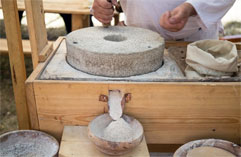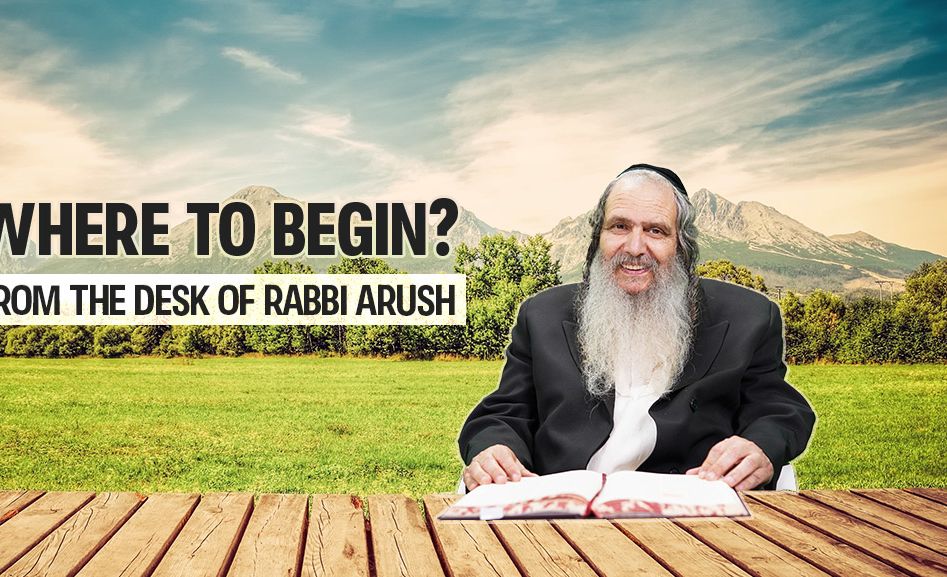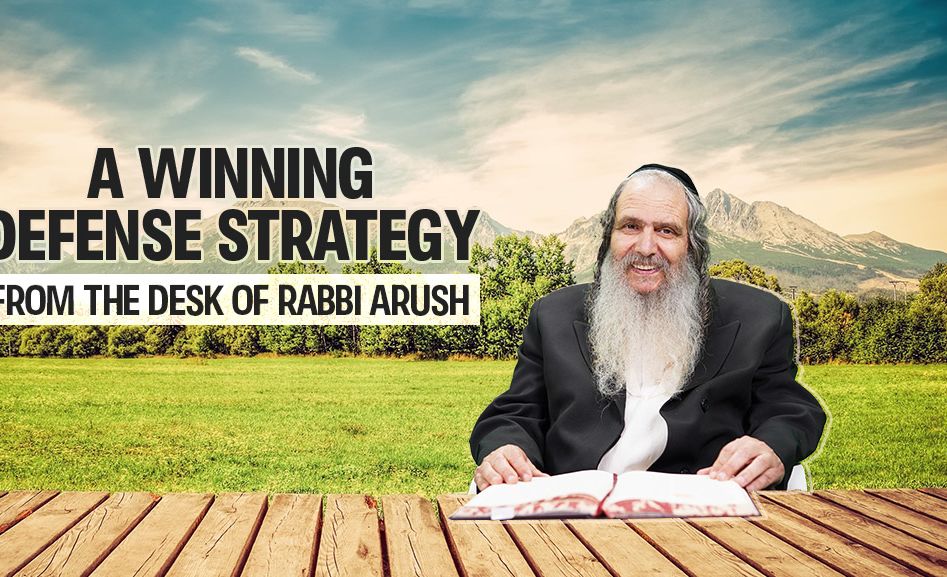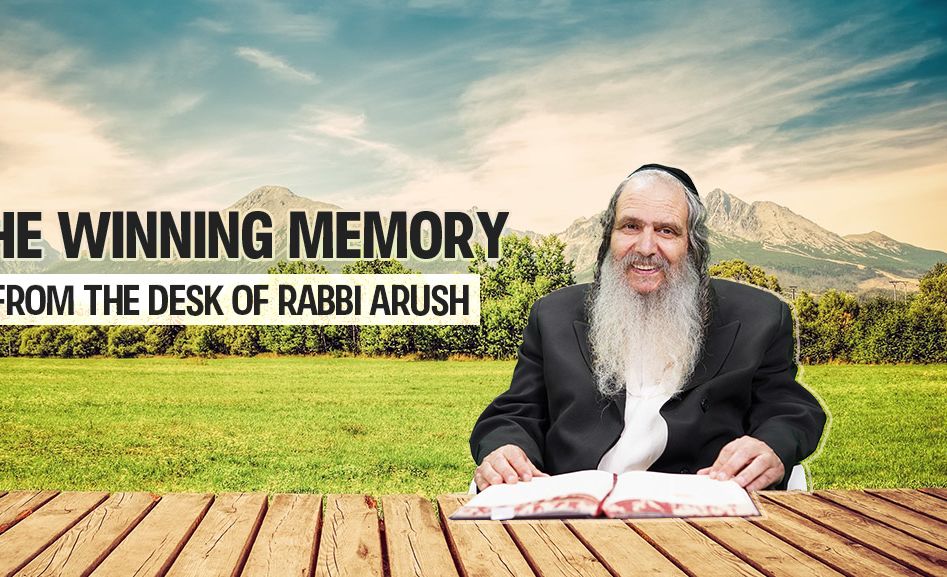
The Grinding Wheel
The mill owner would count more money in his mind every time the worker turned the grinding wheel. Naturally, the owner wanted that mill to be working all day long…

Translated by Rabbi Lazer Brody
I never stop marveling at the emuna of Avraham Avinu, our forefather Abraham. For three days, he walked on foot on the way to sacrificing his son. How did he do it? His heart was clinging to Hashem. The Pele Yoetz teaches us that one’s heart cannot cling to Hashem if that person doesn’t guard his eyes.
Guarding his eyes? Avraham Avinu was walking in the Judean Hills on the way to Mount Moriah, what today is Jerusalem. From what did he need to guard his eyes? There was no one around; he was up in the mountains. Rebbe Nachman teaches that a person who guards his eyes merits a special measure of personal Divine protection, for Hashem says, “That person is Mine!”
When we guard our eyes, we walk in the path of our holy forefather Abraham.
How does a person merit to cling to Hashem all day long? What can we do and how can we do it? Hashem granted me understanding: there’s a passage from Hallel, Hodu L’Hashem ki tov, ki l’olam chasdo.” Give thanks to Hashem all day long for whatever problem you have in life. You can also say  Psalm 100 or sing Psalm 121, or recite whatever you want with the intent of thanking Hashem. That way, your heart is with Hashem all day long.
Psalm 100 or sing Psalm 121, or recite whatever you want with the intent of thanking Hashem. That way, your heart is with Hashem all day long.
In the old days, there were hand-operated flour mills. Every time you turn the handle, you grind more wheat and make more money. The mill owner would count more money in his mind every time the worker turned the grinding wheel. Naturally, the owner wanted that mill to be working all day long…
The same thing goes for your thanking Hashem and your Psalms. It’s like the grinding wheel in the flour mill, grinding more and more flour with each turn. Each word you say not only enables you to cling to Hashem, but it accumulates more and more abundance, both spiritual and material.
The very last passage of Psalms says that every living soul shall praise Hashem. In Hebrew, soul is neshama. The word for breath is neshima, almost identical, from the same Hebrew root word. Our sages learn from this that with every breath we take, we should be praising Hashem. One who praises Hashem and thanks Him clings to Him.
Why did the Jewish People make the Golden Calf? Our sages say that it was for one reason only – to allow themselves illicit sex.
The Golden Calf is still here, not only destroying one’s eyes but his soul too. It’s called the iPhone and the smartphone, the unkosher telephones. The holy Rabbi Shmuel Halevi Vosner, osb”m gave a Halachic ruling that a person with a smartphone has no place in the world to come. I know that it’s difficult for those with iPhones to hear, but both Rabbi Leib Shteinman shlit’a and Rabbi Shmuel Auerbach shlit’a agree with Rabbi Vosner. Every day, I hear first-hand stories of people who are so addicted to iPhones and text messaging that they can’t observe Shabbat anymore – they’re peeking at their phones.
Instead of talking on the phone, talk to your wife. Even better, when a man comes home at the end of a day, he shouldn’t even talk. He should let his wife talk and he should listen to her, giving her his utmost attention. For no money in the world should a person ever criticize his wife – never! Every man must pray to be able to uphold this.
A young man came to me complaining, “After 8 years of marriage, my wife became the most egotistical person in the world. Why? Because for 8 years, he was the most egotistical person in the world! He wanted his wife to listen to him, to be considerate of him, to cook for him, to clean for him; if he would have read the Garden of Peace, he’d realize that he’s a woman not a man! No wonder she can’t stand him. A man’s job is to give rather than receive. So, if a husband is egotistical, then measure for measure – it won’t be long before the wife becomes so turned off that even Moses or Elijah the Prophet would not be able to convince her to make peace with her husband.
What does shalom bayit – marital peace – have to do with clinging to Hashem? If you don’t have a good relationship with your wife, then you are kidding yourself if you think you can have a good relationship with Hashem, much less cling to Him. Get to work, guys – now’s the time to start!








Tell us what you think!
Thank you for your comment!
It will be published after approval by the Editor.